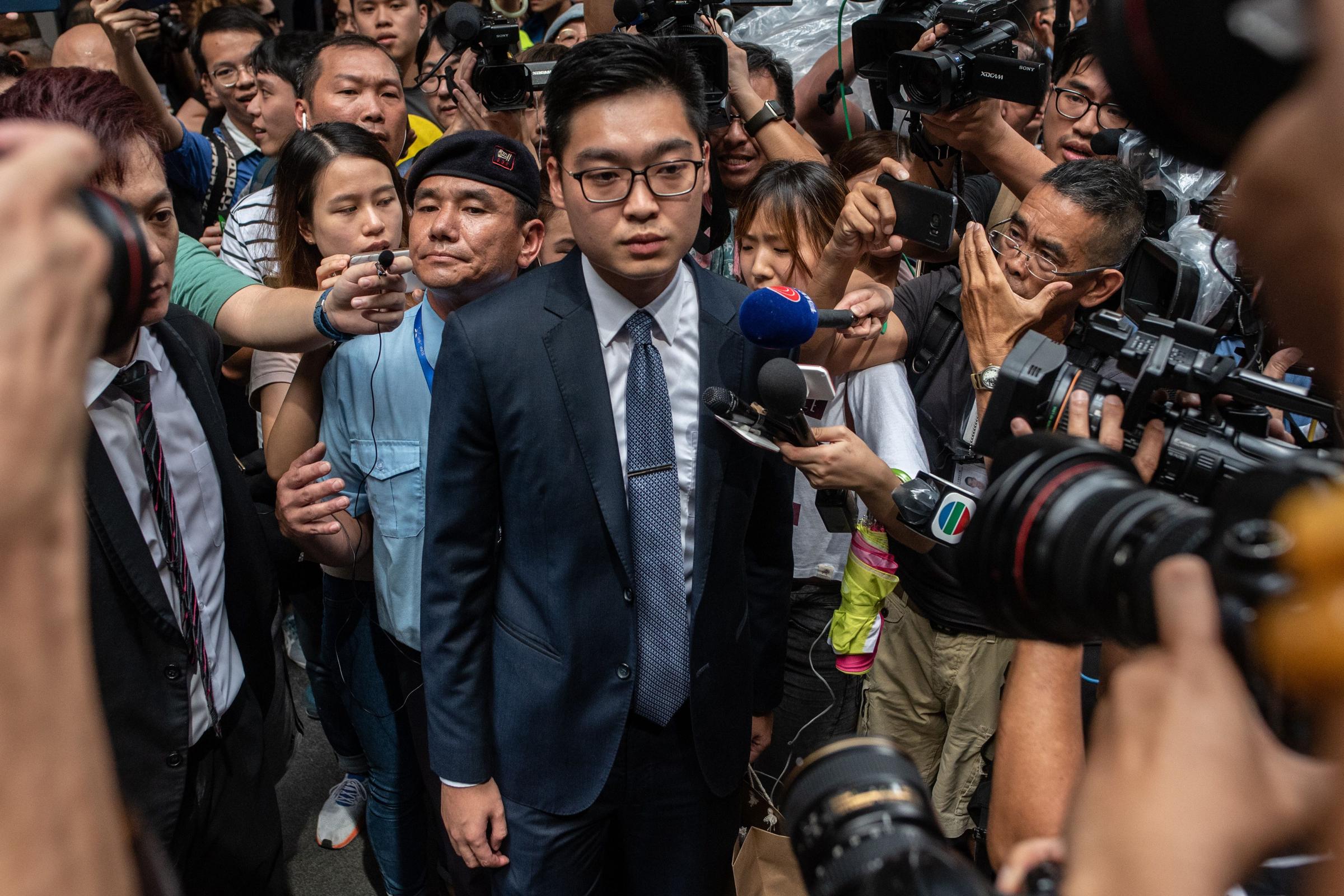Media associations in Hong Kong said they were “shocked and deeply concerned” after city immigration authorities denied a work visa to a prominent journalist in a decision that has stoked fears for the financial hub’s press freedoms.
Victor Mallet, an editor for the Financial Times and the Hong Kong Foreign Correspondent’s Club (FCC) vice president, was denied a visa on Friday.
Representatives from six media groups, including the FCC and Reporters Without Borders (RSF), delivered petitions Monday to Hong Kong’s government requesting a justification for the perceived expulsion of Mallet. The petitions, in English and Chinese, have garnered more than 15,000 signatures combined over the weekend.
Chris Yeung, chair of the Hong Kong Journalists Association, said the immigration authorities’ decision “sets a terrible precedent for Hong Kong’s reputation.”
FCC president Florence de Changy said the journalists are “simply asking for a reasonable explanation…from the Hong Kong authorities on this issue.”
“The ball is now in the government[’s court],” she said.
Mallet was not in Hong Kong when news broke Friday of his visa rejection: he reentered the city on a seven-day visa on Sunday, an FT spokesperson told TIME. Normally, British nationals are permitted to stay in Hong Kong for up to six months without a visa.
Immigration officials did not provide a rationale for either the truncated visitor visa, or the rejection of Mallet’s work visa renewal, the FT said in a statement Monday. In an editorial, the paper said the rejection sends “a chilling message” to Hong Kong, “highlighting Beijing’s tightening grip on the territory.”
Mallet’s case has renewed fears of Beijing’s creeping encroachment on the semi-autonomous territory, especially as the decision is widely thought to be connected with an August event at the FCC with controversial anti-Beijing political figure Andy Chan.
Read more: Who Is Hong Kong Independence Leader Andy Chan?

Hong Kong, a former British colony, enjoys unique civil liberties like press freedoms that are not exercised on the mainland. After the city reverted from British colonial administration in 1997, China vowed to respect these liberties in an arrangement known as “one country, two systems.” But many fear China is failing to abide by the spirit of that accord, and intervening in circumstances perceived as challenging Beijing’s authority.
Mallet’s case “is clearly a form of retaliation” for hosting the Andy Chan event, RSF East Asia Bureau director Cédric Alviani wrote in an email to TIME. “Such action is yet another proof that the Chinese authorities are extending their policy of intimidating foreign journalists to the territory of Hong Kong.”
Britain’s Foreign and Commonwealth Office has requested an “urgent explanation” for Mallet’s rejection, while the U.S. Consulate in Hong Kong called the decision “deeply troubling.”
Hong Kong’s immigration department declined to comment on Mallet’s visa, and did not immediately reply to a list of questions from TIME. But a spokesperson for China’s Ministry for Foreign Affairs praised Hong Kong’s “handling” of the issue.
On Monday, de Changy dismissed as premature concerns that Mallet’s visa denial constitutes a threat to the press association, reiterating that the authorities have yet to explain what she called their “extraordinary move.” Should officials not be forthcoming with a reason, she told reporters, “I count on Hong Kong journalists to ask.”
More Must-Reads from TIME
- Donald Trump Is TIME's 2024 Person of the Year
- Why We Chose Trump as Person of the Year
- Is Intermittent Fasting Good or Bad for You?
- The 100 Must-Read Books of 2024
- The 20 Best Christmas TV Episodes
- Column: If Optimism Feels Ridiculous Now, Try Hope
- The Future of Climate Action Is Trade Policy
- Merle Bombardieri Is Helping People Make the Baby Decision
Write to Eli Meixler / Hong Kong at eli.meixler@time.com